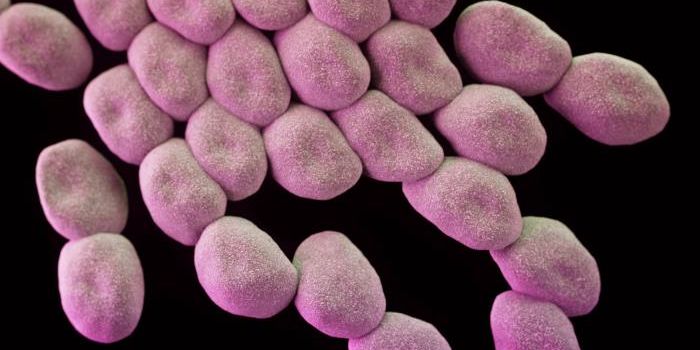Mitochondria Boost Enhances Immune Cell Activity
The tumor microenvironment (TME) is a major obstacle that limits effective cancer treatments. Various cells around the tumor promote immunosuppression and prevent the immune system from targeting cancer growth. More specifically, once antitumor immune cells enter the TME they become polarized to drive tumor progression. Immunotherapy is a form of cancer treatment that targets these polarized immune cell populations to regain their antitumor activity.
T cells are one predominant immune cell responsible for recognizing and targeting foreign pathogens. In the context of cancer, they are the primary cell type many immunotherapies target. In hard-to-treat cancers, T cells are often unable to become activated or they lose the ability to recognize tumor growth. Additionally, many cancers create a physical barrier to prevent T cells from entering the TME. Within the TME, T cells are working against other protumor cell types and become “exhausted” or unable to properly function. The energy needed to appropriately function is limited based on the cell’s mitochondria – an organelle responsible for generating energy for cell activity. As a result, the lack of T cell antitumor activity hinders immunotherapy and leads to increased tumor burden. T cells play a vital role in the elimination of cancer and the goal of recent immunotherapies is to activate these cells to recognize and eliminate tumors. While new immunotherapies are being developed, scientists are still trying to optimize long-lasting and effective T cell targeted therapies.
A recent study in Cell, by Dr. Luca Gattinoni and others, demonstrated that T cells with extra mitochondria improve antitumor activity and reduce T cell exhaustion. Gattinoni is a professor and the Head of Research at the Leibniz Institute for Immunotherapy. His work focuses on optimizing T cell-based therapies and the effectiveness of adoptive T cell transfers in cancer patients. He concludes in this publication that increased mitochondria in T cells “superchargers” the cells and improves T cell adoptive therapy.
Researchers used various models to show how these “supercharged” T cells penetrate the TME and overcome the protumor immune cells. Gattinoni and others transplanted extra mitochondria into the T cells as a novel form of organelle-targeted therapy. This therapy is comparable to organ transplantation, but on a cellular level. Previous work tried to improve mitochondrial fitness through gene and pathway regulation; however, the mitochondria were already dysfunctional.
Previous literature indicated that tumor cells can uptake mitochondria from surrounding immune cells. Building on this work, researchers found that small spindle-like nanotubes extending out of cells can transfer mitochondria. Consequently, the transfer of mitochondria to T cells helped revive their activity. These T cells with extra mitochondria persisted and replicated without becoming exhausted. These data demonstrate the importance of the mitochondria in cell activity.
Gattinoni and others for the first time report the transplantation of mitochondria in T cells to improve antitumor immunity. This work demonstrates how critical mitochondria are in the function and persistence of T cells. Additionally, the work provides further understanding on the role of mitochondria in cells. As a result, these data can improve adoptive T cell therapies and prolong patient survival with hard-to-treat tumors.
Study, Cell, Luca Gattinoni, Leibniz Institute for Immunotherapy








